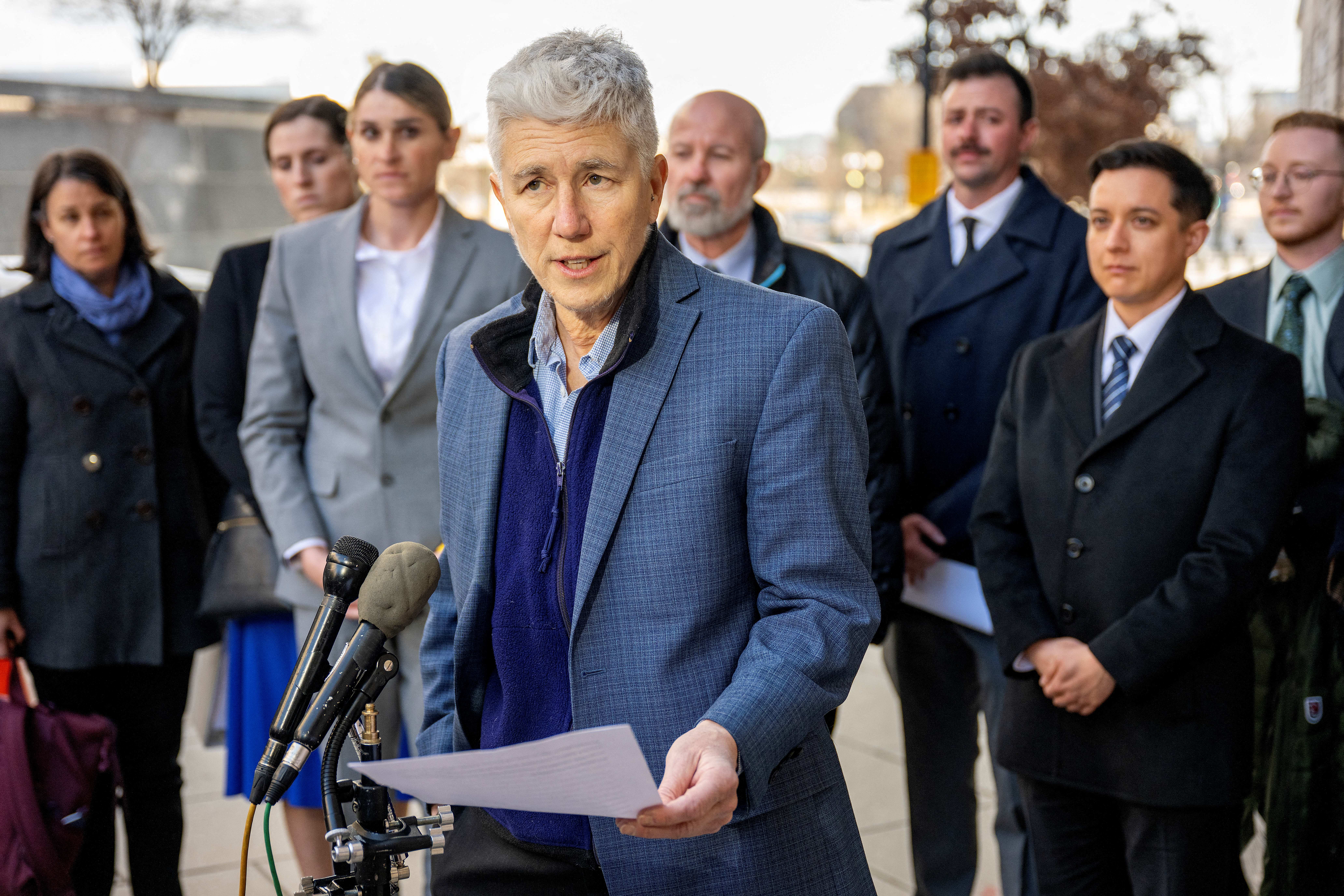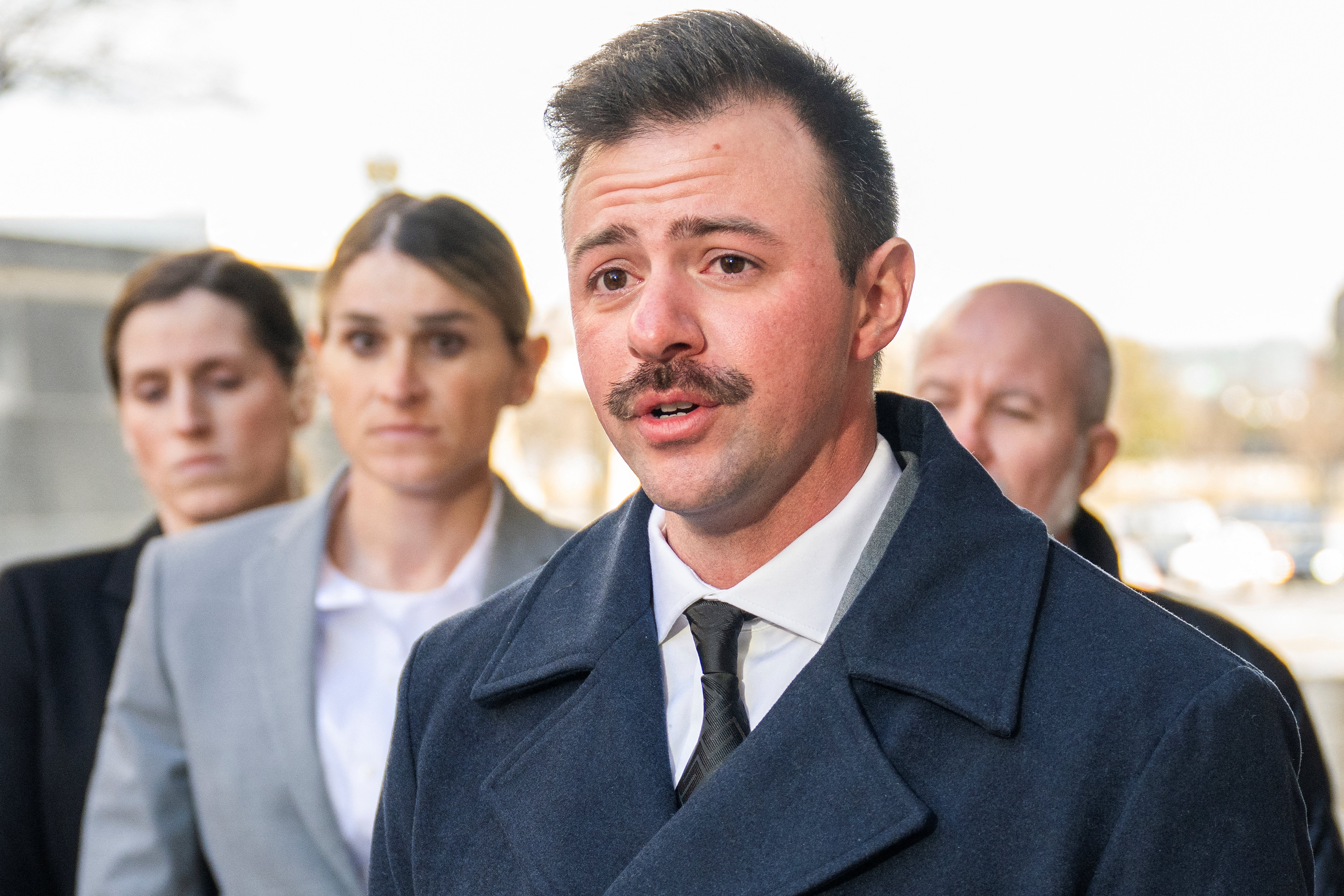Donald Trump’s administration won’t “speculate” whether a homeless transgender person should be rejected from a shelter merely because they are transgender.
The question was posed to a Department of Justice lawyer defending the president’s executive order effectively banning trans service members from the U.S. military, a directive that prompted Defense Secretary Pete Hegseth to reject any new trans recruits and pause gender-affirming healthcare for currently service trans troops.
District Judge Ana Reyes — presiding over a second day of a two-day court hearing in Washington, D.C., to decide whether to block the president’s order — read off a list of Trump’s executive orders and sweeping policy changes targeting trans Americans, suggesting that, taken together, they “scream animus.”
She listed off several actions, from Trump’s executive order eliminating “gender” across the federal government to “literally erasing transgender people” by removing the “T” from LGBT signage and at the Stonewall monument in New York City.
The judge also mentioned Trump’s Department of Housing and Urban Development order to rescind the “equal access rule” to allow homeless shelters to deny trans people.
“What do you think Jesus would say to telling a group of people that they are so worthless that we’re not going to allow them into homeless shelters?” Reyes asked Wednesday. “Or do you think he’d say, ‘WTF, of course let them in?’”
Justice Department attorney Jason Lynch called her comments “another soundbite for the coverage.”
“The United States is not going to speculate what Jesus would say,” he replied.
A group of transgender service members are asking Reyes for a preliminary injunction that would strike down Trump’s order as a legal challenge continues to play out. She will hold another hearing March 3.
The judge’s line of questioning not only challenged the basis for Trump’s military ban but appeared to argue that “as a whole” the president’s anti-transgender agenda is motivated by prejudice.
Pressed whether the administration believes transgender people face discrimination, a reluctant Lynch said only that “I am sure they can find an instance of discrimination.”
“You cannot tell me that transgender people are not being discriminated against,” said Reyes, mentioning Trump’s erasure of trans people from the Stonewall monument. “We are literally erasing their contributions to modern society. … When you look at all of these as a whole … it screams animus.”

Lynch said the administration does not believe that the discrimination facing trans people “reaches a level where it creates a quasi suspect class,” thus subject to anti-discrimination protections under the 14th Amendment’s equal protections clause.
“But what on earth would?” Reyes fired back. “I promise you, whatever you could come up with, this is worse.”
Trump’s order claims that the “adoption of a gender identity inconsistent with an individual’s sex conflicts with a soldier’s commitment to an honorable, truthful, and disciplined lifestyle, even in one’s personal life.”
“A man’s assertion that he is a woman, and his requirement that others honor this falsehood, is not consistent with the humility and selflessness required of a service member,” the order states.
Reyes, who was appointed by President Joe Biden, argued that the concepts of sex and gender are integral to Trump’s executive order on trans people serving in the military.
“They’re not just throwaway words. You can’t understand the [order] without using the words sex and gender. It’s impossible, right?” she said.

The order relies on Trump’s definitions on “sex” that now guide virtually every public policy in his administration. During the first day of the hearing on Tuesday, Reyes argued that Trump’s executive order that eliminates federal recognition of trans people inaccurately states there are only two sexes, without accounting for intersex people.
“This executive order is premised on an assertion that’s not biologically correct. There are anywhere near 30 intersex examples. Anyone who doesn’t have XX or XY chromosomes is not just male or female, they’re intersex,” Reyes said. “If I’m intersex, where am I allowed to go?”
Thousands of transgender troops are currently serving in roles across the country’s military branches, according to SPARTA Pride, which represents trans Americans in the military.
At least two lawsuits are now asking courts to overturn Trump’s order.
Following Wednesday’s hearing, lead plaintiff Nicolas Talbott, a transgender U.S. Army Reservist, told reporters he is “cautiously optimistic” that the judge will decide to strike down the order.
“There is no need to shake up the status quo of what we’re doing in the United States military,” he said.
The impacts of the order “obviously has an impact on our day to say lives and sense of self to a degree,” he said. Following Trump’s threats to trans service members in his first administration, it has been “socially stressful and emotionally draining to have to be going through this once again,” Talbott said.
“What everyone wants is the most lethal military the world has ever seen,” he said. “It would be such a substantial loss to our country and to security of the United States if we were to suddenly lose them.”







